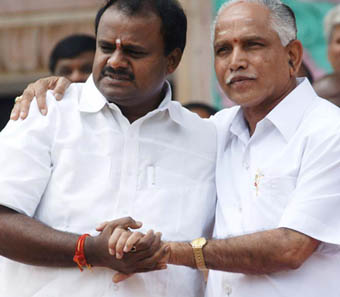Bengaluru, May 19: Containment zones in Karnataka will be much smaller in size under the latest lockdown norms. However, rules and loopholes will be tightened and action against violators will be stringent in order to check the spread of the disease.
Revised guidelines issued by the Centre to the state, reveal containment zones are delineated based on mapping of cases and contacts. Intensive action will be carried out in these areas with the aim of breaking the chain of transmission. Therefore, the area of a containment zone should be appropriately defined by the district administration/local urban bodies with technical inputs at local level.
The health department is considering shrinking the size of containment zones from the existing 100 metres to open up more space for economic activities. Medical education minister K Sudhakar, also a member of the Covid taskforce, said additional chief secretary (health department) Javed Akthar will issue a new definition of a containment zone after the Covid-19 taskforce holds its next meeting.
“We are planning to further shrink it and restrict containment zones to an apartment complex, independent house or even a lane where the Covid-19 patient resides,” Sudhakar said. He went on to say bigger containment zones will impede businesses and normal activities in the vicinity, something which the government wants to avoid.
The minister said Karnataka will also do away with colour-coding districts. “With restrictions being relaxed for almost all activities, it does not make sense to pursue with colour codes. It is either containment zone or outside containment zone,” he said.
In rural areas, the minister said containment zones will be identified by the taluk heads. Government sources say it is difficult to restrict activities to certain areas or smaller location in rural areas as farmers and people will have to travel to the outskirts of their villages for their livelihood.
An official said, a containment operation (large outbreak or cluster) is deemed successful when no case is reported in 28 days from the containment zone.
 Speaking to reporters in Bengaluru on Tuesday, Kumaraswamy said that the Congress was trying to harm the prospects of the BJP in the Rajya Sabha and Legislative Council polls.
Speaking to reporters in Bengaluru on Tuesday, Kumaraswamy said that the Congress was trying to harm the prospects of the BJP in the Rajya Sabha and Legislative Council polls.



Comments
These so called politicians are well known for their corruption. They will support any party for chair. They're fooling public and earnings out of voters blood.. Shame on them..
Hope my dear SDPI brothers will learn a lesson from his Comments and will think Twice before joining hands with Janatha Dal like sdpi did in Mangalore earlier
Nothing new in this!! every one you are opportunist politician, you have only one agenda that s power hungry!! for that you are ready to do anyting
Sometimes with congress....sometimes BJP....sometimes with communist.....reckless people....no ethics and morale at all....
Please stop fooling innocent voters....Mr. Siddaramayya is doing a good job around there....
Add new comment